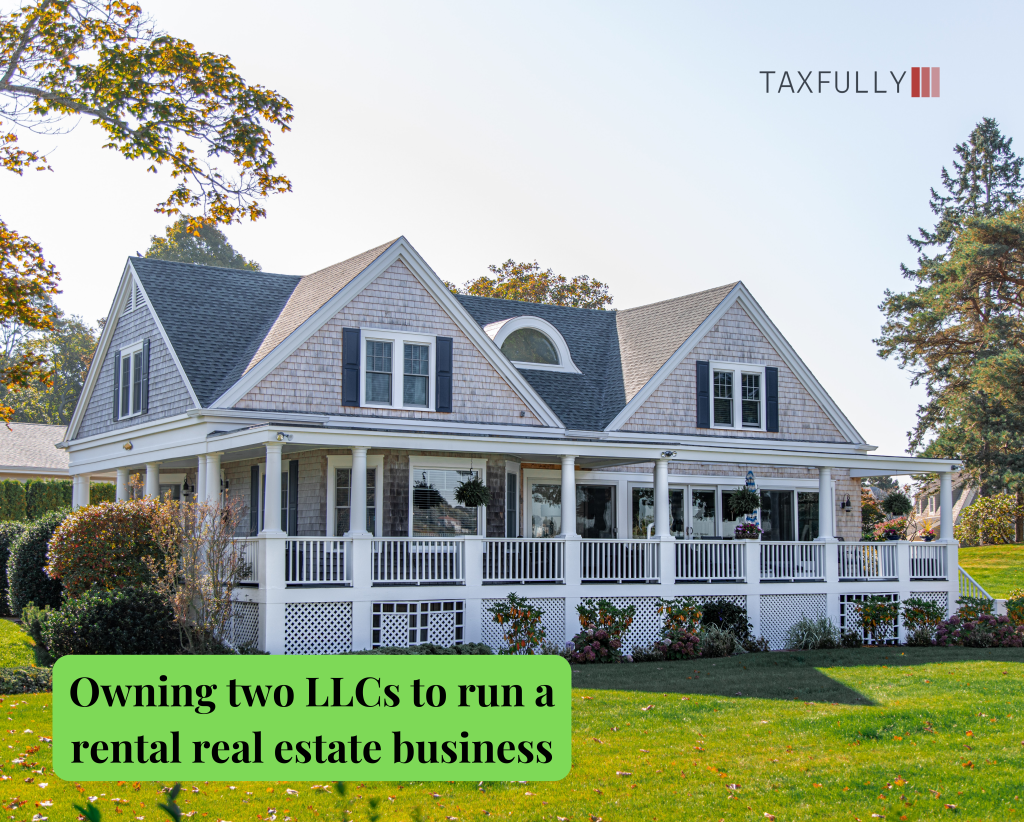If you’re running an Airbnb business, you may be wondering whether forming a Limited Liability Company (LLC) is the right choice for you. While it’s not a legal requirement to form an LLC to host on Airbnb, many property owners find that this business structure offers benefits such as liability protection, tax advantages, and operational flexibility. In this comprehensive guide, we’ll explore the advantages, disadvantages, and steps involved in forming an LLC for your Airbnb business to help you make an informed decision.
What Is an LLC?
A Limited Liability Company (LLC) is a business structure that combines the benefits of a corporation and a sole proprietorship or partnership. It provides limited liability protection, meaning that the personal assets of the LLC owners (called members) are protected from business debts and lawsuits. Additionally, LLCs offer pass-through taxation, simplifying tax filing for business owners.How an LLC Applies to Airbnb Owners
If you operate an Airbnb, an LLC can help safeguard your personal assets in case of legal disputes, property damage claims, or financial liabilities. This can be especially important in the short-term rental industry, where unforeseen incidents such as guest injuries, property damage, or legal issues with local regulations may arise.
Advantages of Forming an LLC for Your Airbnb
1. Limited Liability Protection
One of the biggest advantages of forming an LLC is limited liability protection. If a guest sues your business due to an injury or other legal matter, your personal assets—such as your home, car, or personal savings—are generally protected. Only the assets owned by the LLC (such as the rental property itself) are at risk.
2. Pass-Through Taxation
LLCs benefit from pass-through taxation, meaning the profits and losses of the business are reported on your personal tax return. This helps avoid double taxation, which is common with corporations. Airbnb hosts operating as LLCs typically report business income on their Schedule C tax form, making tax filing more straightforward.
3. Flexible Management Structure
Unlike corporations that require a board of directors and formal meeting structures, LLCs offer flexibility in how they are managed. Owners (members) can either manage the business themselves or appoint a manager.
4. Business Credibility and Financing Opportunities
Forming an LLC can enhance your business’s credibility and make it easier to secure financing. Many lenders prefer to work with registered business entities rather than individuals. Additionally, an LLC can help you establish a separate business bank account, making it easier to manage finances and expenses.
5. Ease of Expansion
If you plan to scale your Airbnb business by adding more properties or co-hosting multiple listings, an LLC structure makes it easier to manage multiple revenue streams and potential partnerships.
Disadvantages and Considerations
1. Formation and Maintenance Costs
Setting up an LLC requires filing fees that vary by state, along with annual reporting fees. You may also need to pay for a registered agent, depending on your state’s requirements.
2. Self-Employment Taxes
LLC members must pay self-employment taxes, including Social Security and Medicare contributions, on business profits. Depending on your income level, this could be a significant tax burden.
3. Financing Challenges
If you plan to finance an Airbnb rental property with a mortgage, securing a loan under an LLC may be more difficult than getting a personal mortgage. Many lenders view LLCs as higher-risk borrowers and may require larger down payments or higher interest rates.
Step-by-Step Guide to Forming an LLC for Your Airbnb
Step 1: Choose an LLC Name
Your LLC name must be unique and comply with state regulations. It should also reflect your business identity and Airbnb branding.
Step 2: File Articles of Organization
Submit the required paperwork (Articles of Organization) to your state’s Secretary of State office and pay the necessary filing fee.
Step 3: Appoint a Registered Agent
Most states require an LLC to have a registered agent responsible for receiving legal documents on behalf of the business.
Step 4: Create an Operating Agreement
While not always legally required, an operating agreement outlines how your LLC will be managed, including ownership distribution and financial responsibilities.
Step 5: Obtain an EIN (Employer Identification Number)
An EIN from the IRS is necessary to open a business bank account, file taxes, and hire employees if needed.
You may also like to read:
Owning two LLCs to run a rental real estate business
If you’re in the rental real estate business, managing your properties smartly is key to maximizing profits and protecting your assets. One important strategy? Use an operating LLC to manage your rental properties. cc…
Read More

Step 6: Register for State and Local Taxes
Depending on your state, you may need to register for sales tax, occupancy tax, or other business-related taxes.
Step 7: Set Up a Business Bank Account
Keeping business finances separate from personal funds is essential for legal and tax purposes.
Step 8: Comply with Local Airbnb Regulations
Research your city’s short-term rental laws to ensure compliance with licensing, zoning, and tax requirements.
Frequently Asked Questions (FAQs)
1. Can I Put My Airbnb Property Under an LLC After I’ve Already Started Renting?
Yes, you can transfer ownership of your property to an LLC. However, this may involve title transfers, refinancing, and potential tax implications.
2. What’s the Difference Between an LLC and an S Corporation for an Airbnb Business?
Both LLCs and S corporations provide liability protection and pass-through taxation, but S corporations may help reduce self-employment taxes. Consult a tax professional to determine the best option for you.
3. Should I Form an LLC in a Different State?
While some states offer tax advantages for LLCs, you’ll still need to register your LLC in the state where your Airbnb property is located. Operating in multiple states can lead to additional costs and compliance requirements.
4. How Does an LLC Impact Airbnb Taxes?
LLC taxes depend on how the LLC is structured. Single-member LLCs report profits on their personal tax returns, while multi-member LLCs must file partnership tax returns. Some LLCs can elect to be taxed as an S corporation.
5. What Happens if I Don’t Form an LLC for My Airbnb?
If you operate your Airbnb as a sole proprietorship, your personal assets are at risk in case of lawsuits or debts. While insurance provides some protection, an LLC offers an additional legal safeguard.
Conclusion: Should You Form an LLC for Your Airbnb?
Deciding whether to form an LLC for your Airbnb business depends on your goals, financial situation, and risk tolerance. If you want to protect your personal assets, streamline taxes, and add credibility to your business, forming an LLC is a worthwhile investment. However, it’s essential to weigh the costs, tax obligations, and financing challenges before making a decision. Consulting with a tax professional or business attorney can help ensure that forming an LLC aligns with your Airbnb business strategy.



